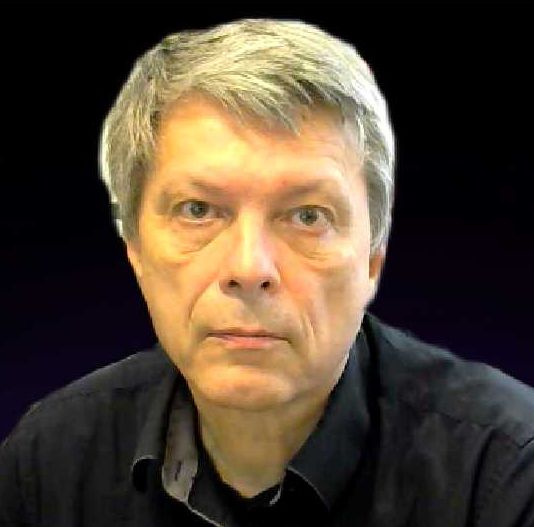
Center for Medical Physics and Biomedical Engineering
Position: Associate Professor
ORCID: 0000-0002-2190-5242
T +43 1 40400 37730
andreas.berg@meduniwien.ac.at
Keywords
Cartilage; Diffusion Magnetic Resonance Imaging; Histology, Comparative; Magnetic Resonance Imaging; Microscopy; Multimodal Imaging; Phantoms, Imaging; Polymers; Quality Control; Radiation Oncology; Radiation, Ionizing; Tendons; Ultrahigh field MRI
Research group(s)
- MR Physics
Head: Christoph Juchem
Research Area: The Division of MR Physics is pursuing basic methodological and translational/clinical research in the areas of magnetic resonance (MR) imaging and spectroscopy.
Members:
Research interests
1 Hardware and Software Development
2 Quality control and Quantitative Imaging
3 Applications:
- Polymer-gel-dosimetry for radiation therapy
- Broad-Line Imaging of the MR-invisible in clinical imaging (e.g. hard tissue, tendons, teeth)
- Imaging of Biocompatible material (e.g. polymers, plastics) and its degradation
- MR-based-histology
- High-resolution in-vivo µ-imaging
- New MR-microscopy applications
Please also refer to the topic-page:
Parameter selective Magnetic Resonance (MR) Micro-Imaging and MR-Microscopy:
Techniques, methods & infrastructure
1 Hardware:
- Ultra-High-field (B = 7T) Magnetic Resonance Imaging (MRI) -scanner;
- Prototype Magnetic Resonance Microscopy insert including strong gradeint system and sensitive rf-coils
- Simple chemical lab
2 Measurement techniques:
- Parameter selective imaging for different contrasts: spin density, T2, T1, diffusivity, fat- + water-saturation, Magnetization transfer,..
- Ultrashort Time Encoding (UTE, Broad-Line Imaging) of rigid tissue and polymer imaging
- Small Volume MRS
3 Special techniques
- Polymer gel manufacturing and MR-imaging based high-resolution 3-Dimensional dosimetry for radiation therapy
- Magnetic Resonance microscopy and micro-imaging
- PETRA (Ultrashort Time Encoding imaging).
- MR-characterization of modified solid MR-polymers
Selected publications
- Berg, A.G. and Börner, M. (2023) ‘A phantom for the quantitative determination and improvement of the spatial resolution in slice-selective 2D-FT magnetic resonance micro-imaging and -microscopy based on Deep X-ray Lithography (DXRL)’, Frontiers in Physics, 11. Available at: http://dx.doi.org/10.3389/fphy.2023.1144112.
- A. Berg, M. Stoiber, X. Deligianni, O. Bieri; T2*-mapping of tendon µ-structure changes after mechanical load in an adult bovine animal model using vTE pulse sequences: the role of resolution up to microscopic scale in quantification; Magnetic Resonance Materials in Physics, Biology and Medicine 30 (Suppl 1): S106-S107 (2017)
- Khan, M. et al. (2019) ‘Basic Properties of a New Polymer Gel for 3D-Dosimetry at High Dose-Rates Typical for FFF Irradiation Based on Dithiothreitol and Methacrylic Acid (MAGADIT): Sensitivity, Range, Reproducibility, Accuracy, Dose Rate Effect and Impact of Oxygen Scavenger’, Polymers, 11(10), p. 1717. Available at: http://dx.doi.org/10.3390/polym11101717.
- Hager, B., Schreiner, M.M., Walzer, S.M., Hirtler, L., Mlynarik, V., Berg, A., Deligianni, X., Bieri, O., Windhager, R., Trattnig, S. and Juras, V. (2022), Transverse Relaxation Anisotropy of the Achilles and Patellar Tendon Studied by MR Microscopy. J Magn Reson Imaging, 56: 1091-1103. https://doi.org/10.1002/jmri.28095
- 5. A. Berg, G. Heilemann, D. Georg MR-µ-imaging based 3-dimensional-polymer gel dosimetry in comparison to 2D-film and 1D-diamond dosimetry of mm-sized photon pencil beams; Biomedical Engineering-Biomedizinische Technik 62(s1) S519 (sept 2017); https://doi.org/10.1515/bmt-2017-5099